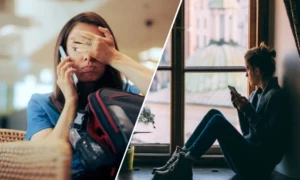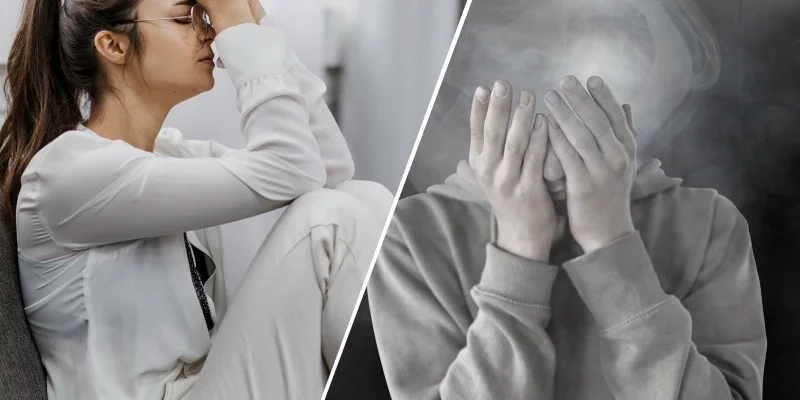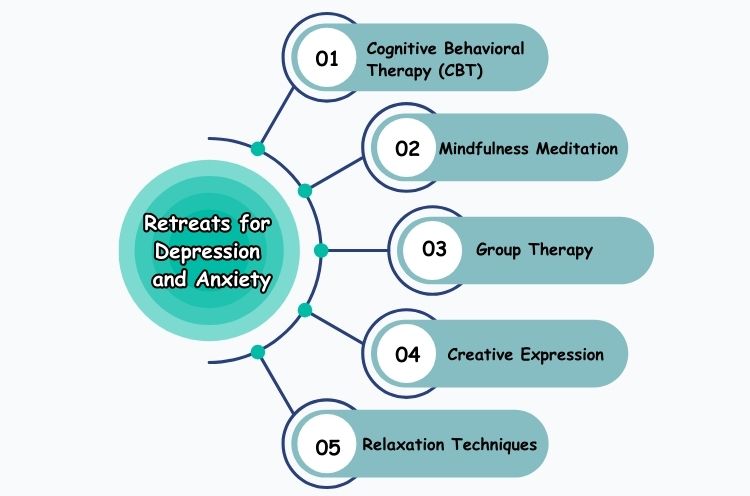
Retreats for Depression and Anxiety

Understanding Depression
Types of Depression
There are various types of depression that can be experienced by individuals, including:
Major Depressive Disorder (MDD): This is the most common type of depression and is characterized by extreme sadness or irritability, loss of interest in activities that used to bring joy, and a low sense of self-worth.
Persistent Depressive Disorder (PDD): Also known as Dysthymia, this form of depression is characterized by long-term low mood and intermittent episodes of major depressive disorder.
Bipolar Disorder: This is a mental health condition in which an individual experiences extreme highs (mania) and lows (depression).
Postpartum Depression: Postpartum depression is a type of depression that can occur in the weeks and months after childbirth.
Seasonal Affective Disorder (SAD): This form of depression is usually triggered by the changing of seasons and can be characterized by fatigue, a lack of motivation, irritability, and anhedonia.
It is important to note that depression can affect both men and women in different ways. While both genders may experience symptoms such as fatigue, low self-esteem, anhedonia, mood swings, and sleep disturbances, they may also present differently.
Retreats for Depression
- Residential Treatment Centers: These retreats provide a structured environment in which individuals receive intensive treatment for depression. This type of retreat provides round-the-clock support while offering therapies such as cognitive behavioral therapy, art therapy, and equine therapy.
- Nature Retreats: Nature retreats are designed to help individuals reconnect with nature and focus on self-care. These retreats typically involve activities such as hiking, camping, yoga, meditation, and journaling.
- Luxury Retreats: Luxury retreats offer a more luxurious environment in which to address one’s depression. These retreats often include amenities such as spa treatments, gourmet meals, fitness classes, and guided therapeutic activities.
Understanding Anxiety
Types Of Anxiety
There are various types of anxiety that can be experienced by individuals, including:
Generalized Anxiety Disorder (GAD): GAD is characterized by persistent and excessive worry about a variety of topics. It can affect an individual’s ability to concentrate and make decisions.
Panic Disorder: This type of anxiety disorder is marked by recurrent panic attacks, which are sudden episodes of intense fear or terror.
Social Anxiety Disorder: This type of anxiety disorder is characterized by excessive fear and self-consciousness in certain social situations, such as public speaking or meeting new people.
Post-Traumatic Stress Disorder (PTSD): PTSD is an anxiety disorder that can occur after a traumatic event and is characterized by flashbacks and intrusive memories.
Obsessive-Compulsive Disorder (OCD): OCD is a disorder characterized by repetitive, intrusive thoughts as well as compulsive behaviors.
Retreats for Anxiety
- CBT: Cognitive behavioral therapy (CBT) is a type of psychotherapy that focuses on identifying and addressing negative thought patterns that can lead to anxiety. During a CBT retreat, individuals will receive personalized guidance from mental health professionals while participating in educational activities and group discussions to gain insight into their own personal journey.
- Nature Retreats: Nature retreats provide an opportunity for individuals to reconnect with nature and focus on self-care. These retreats typically involve activities such as hiking, camping, yoga, meditation, and journaling.
- Wilderness Therapy: Wilderness therapy is an alternative form of treatment that involves outdoor activities such as rock climbing, wilderness survival skills, and animal tracking in order to promote personal growth and development. This type of retreat is often beneficial for those with anxiety as it allows individuals to disconnect from the everyday pressures of life and reconnect with nature.
How Retreats for Depression and Anxiety Can Transform Your Life
The following are some of the coping strategies and mental health retreats for depression:

Cognitive Behavioral Therapy (CBT): This type of therapy focuses on identifying and changing negative thoughts that can lead to destructive behaviors.
Mindfulness Meditation: This is a form of meditation that helps individuals become aware of their thoughts, emotions, and bodily sensations without judgment. It has been shown to be effective in reducing symptoms of depression and anxiety.
Group Therapy: Retreats often include group therapy sessions, which allow members to support one another through their struggles, express their feelings, and learn from each other’s experiences.
Creative Expression: Activities such as painting, drawing, or writing can help to both provide a creative outlet for your emotions as well as help to build self-confidence and resilience.
Relaxation Techniques: Retreats may include activities such as yoga, tai chi, or even massage, which can help to reduce stress and anxiety levels.
Wellness retreats for depression and anxiety are a great way to take time out for yourself and focus on your mental health. Taking part in one can help you gain insight into your own journey, develop effective coping strategies to manage your symptoms, and provide an opportunity to build relationships with other members of the retreat community who understand and can relate to what you are going through.
Retreats for Women with Depression
- Yoga and meditation
- Mindful walking
- Art therapy
- Group discussions and activities
- Nature Exploration
Depression Retreats for Young Adults
- Nature Exploration
- Team Building Exercises
- Group Therapy Sessions
- Art Therapy
- Engaging in lectures on Mental Health & Wellness
Final Thoughts
References
Link: www.cdc.gov/reproductivehealth/depression/
Link: www.nimh.nih.gov/health/statistics/major-depression
Link: https://mhanational.org/issues/state-mental-health-america





